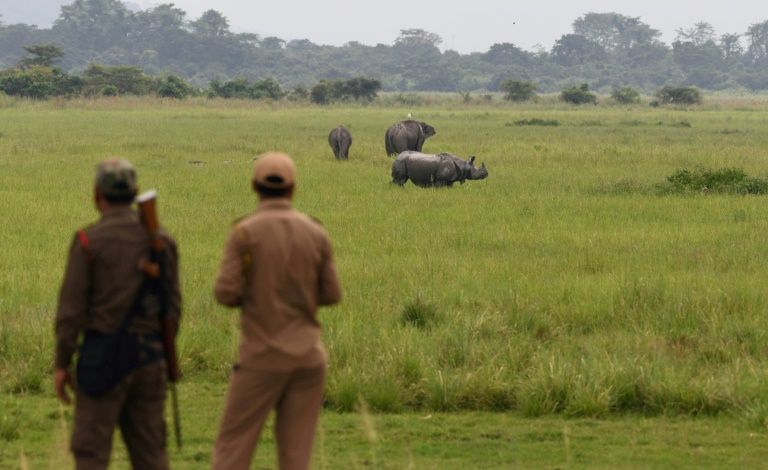In Kaziranga National Park, rangers and animals may be thankful for the short break from the scorching heat this monsoon season, but it also meant more poachers linger close.
The short rainy season at the reserve may cool down the animals, but it can also be a dangerous battle to experience. The grass reaches head-height and the rain can cause flooding, leading animals to move to higher ground.
For poachers, it is the perfect season. With tall grass, they can have better protection and greater camouflage. Animals often move to the outskirts of the park, which is the best place for poachers to take their aim.

“We are always on our toes in this season. There is hardly any rest for us. Information about poachers entering the park comes anytime and we have to respond immediately,” Gopi Kanta Deka, a ranger, explained to AFP.
For them, they are on a constant move – no matter where the animal goes, they go too to protect them from harm.
“We walk in groups from one anti-poaching camp to another or paddle boats during high floods to reach those areas from where the information has come in and get to the job quickly,” Deka added.
The national park is considered a UNESCO-recognized reserve and home to two-thirds of the world’s one-horned rhinos. Poachers can earn as much as $150,000 for one horn when sold in a black market. Rhino horns are still on a high demand for its use in traditional Chinese medicine.

According to an official count in 2018, there are only 2,413 one-horned rhinos left who are all situated in Kaziranga. Though it is illegal to hunt them, poaching continues.
“There is a huge demand for the horns and international rackets are pumping in huge amounts of money, prompting poachers and sometimes to risk their own lives,” wildlife activist Somyadeep Datta warned.
So far, three rhinos have already been killed.
The International Union for Conservation of Nature (IUCN) Red List listed them, the Indian rhinoceros, as vulnerable and at a threat of extinction.
Related stories:
– Tortoise poachers get stiff sentence in Madagascar
– Activists release video footage of poachers killing hibernating black bear and her cubs
– 500 vultures die after eating poisoned elephants in Botswana





